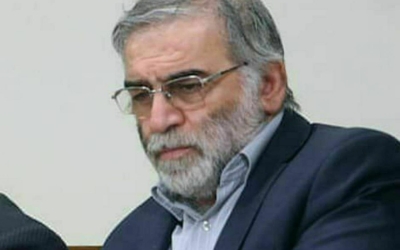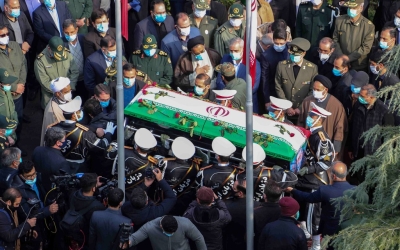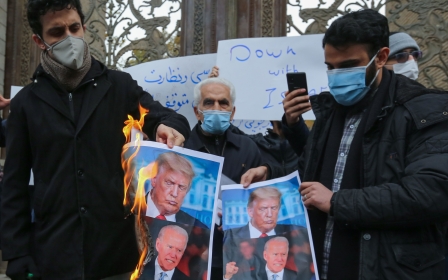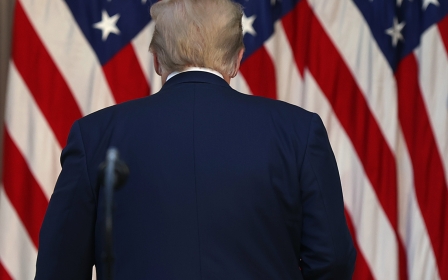Iran scientist killing: US and Israel preparing for Tehran retaliation
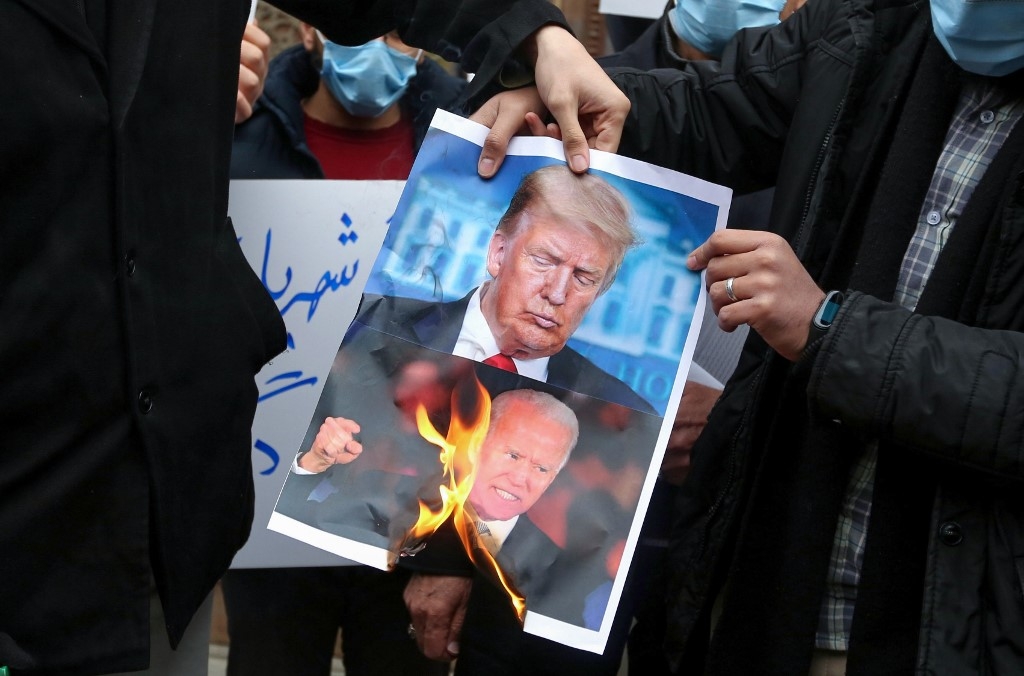
US and Israeli military officials have stepped up their coordination in preparation for a potential Iranian retaliation to the assassination of its senior nuclear scientist, Mohsen Fakhrizadeh, Haaretz reported on Thursday.
Both Israel's army and the US Central Command have reportedly taken measures that include the detection of missile and rocket fire on US and Israeli targets in the Middle East, after Fakhrizadeh was killed on 27 November east of Tehran, on a road near the town of Absard.
Though no Israeli reserve forces were mobilised or units reinforced, the Israeli and US military officials believe that the possibility of Iran avenging the assassination of Fakhrizadeh is high, adding that the first anniversary of the assassination of top Iranian general Qassem Soleimani is approaching in January.
A senior Israeli security official told Reuters on Wednesday that "the Iranians are looking for 'prestige' targets like these, that can be hit with low casualties, meaning - they may hope - fewer chances of escalation," adding that the question remains whether Hezbollah, the Lebanese political and paramilitary group supported by Iran, "would strike now".
On Wednesday, US President Donald Trump's administration ordered the scaling down of its presence in Iraq and the Middle East, according to Politico.
US aircraft and heavy bombers were stationed in the Gulf to secure and protect the withdrawal of US forces from Iraq and Afghanistan.
The outgoing US administration has also called home almost half of its diplomatic staff who were deployed in the US embassy in Baghdad as a temporary measure, but it remains unclear if a fuller staffing of the US embassy will be established in the future, Politico reported.
Although Israel has not commented on Fakhrizadeh's killing, a senior official in the Trump administration told US media that Mossad, Israel's external intelligence agency, was behind the operation.
Ayatollah Ali Khamenei, Iran’s supreme leader, has vowed to retaliate. Meanwhile, former air force commander in the Islamic Revolutionary Guard Corps (IRGC) Hossein Dehghan said after the killing that “we will strike as thunder at the killers of this oppressed martyr and will make them regret their action”.
Iran has several proxy allies in Yemen, Syria, Lebanon, the besieged Gaza Strip and Iraq.
The killing of Fakhrizadeh and recent attacks on Iranian-backed groups are seen by analysts as an attempt by Israel to trigger a military response from Iran, giving an excuse for war and leaving the incoming administration of US president-elect Joe Biden no avenue to re-enter the Iran nuclear deal, which Trump exited in 2018.
Middle East Eye propose une couverture et une analyse indépendantes et incomparables du Moyen-Orient, de l’Afrique du Nord et d’autres régions du monde. Pour en savoir plus sur la reprise de ce contenu et les frais qui s’appliquent, veuillez remplir ce formulaire [en anglais]. Pour en savoir plus sur MEE, cliquez ici [en anglais].


